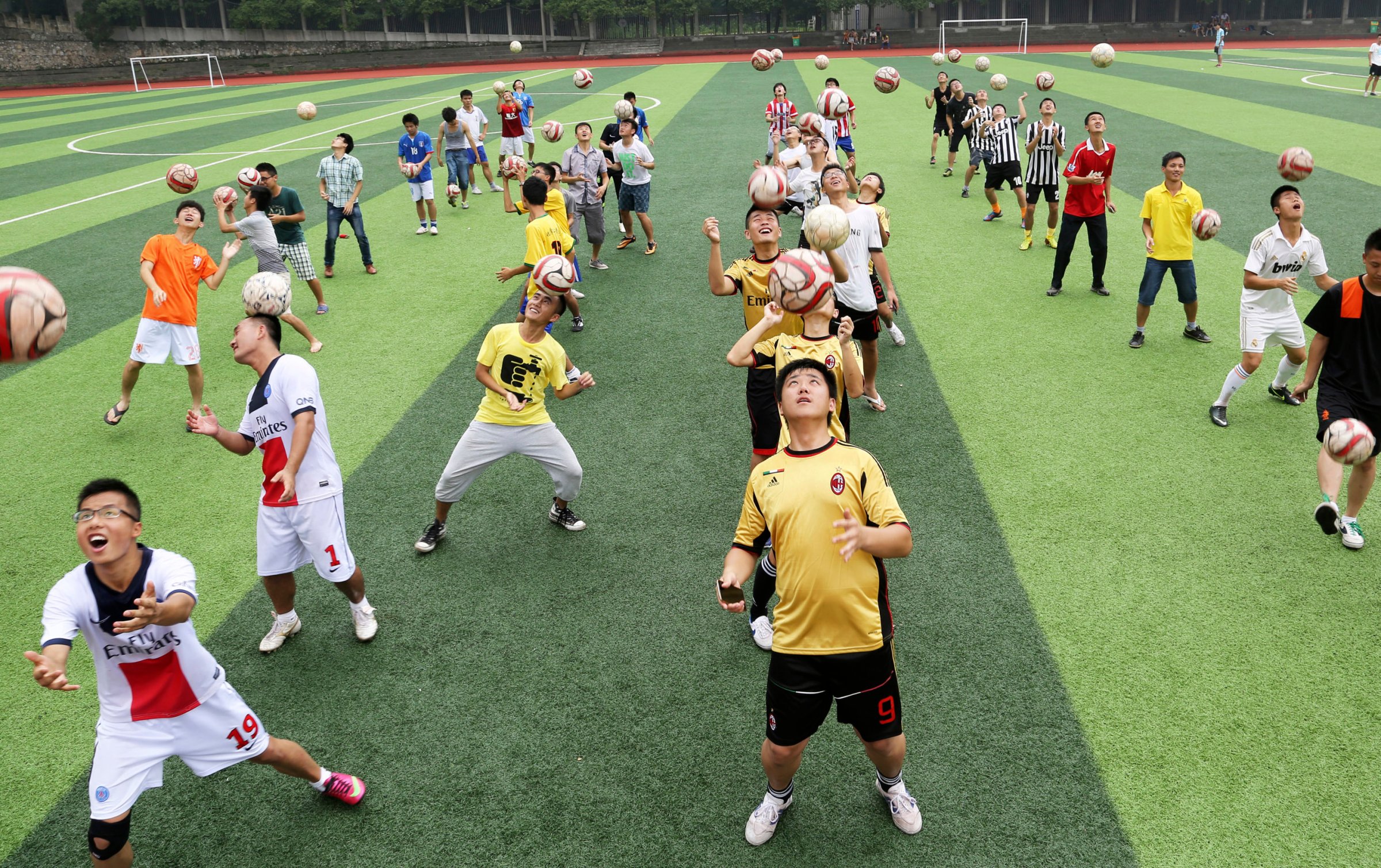
China may be the world’s most populous nation but a men’s soccer giant it is not. Indeed, the nation, ranked 103 in FIFA’s rankings — that’s one below Equatorial Guinea — didn’t even make this year’s World Cup finals. Or the last one. Or the one before that. So how do China’s beleaguered football fans feel? Resigned, mostly. “If China were in the World Cup,” says Chen Xiao, a football journalist from Shijiazhuang, in northeastern China, “it would contradict the laws of football.”
There are many reasons ascribed to the dire state of Chinese men’s soccer. (The women aren’t bad at all.) In places like Brazil, kids seem to grow up with footballs attached to their feet. In China, by contrast, there’s no tradition of kiddie soccer fun, even if some patriots insist the sport was actually invented in the Middle Kingdom. Nor is there a network of suburban children’s leagues, as in the U.S., because after-school hours in China tend to be dedicated to study, study, study.
That hasn’t stopped millions of Chinese from enjoying the sport, at least as spectators. President Xi Jinping, for one, is a self-avowed soccer fan. China does have a domestic soccer league but its history of bribery and match-fixing makes, well, even FIFA look clean. (There are attempts to professionalize the Chinese soccer league, along with major investments from Chinese billionaires, but that’s a matter for the future.) As for the Chinese national side, it has only ever made the World Cup finals once, back in 2002, when even the coaching of journeyman pro Bora Milutinovic couldn’t coax the squad to net a single goal. In international matches over the past year, China has succumbed to the likes of Uzbekistan, Iraq and a Thai team padded mostly with youth players. (That last defeat compelled irate Chinese fans to riot.)
Beijing has placed a lot of its international honor on sporting recognition. Through a Soviet-style athletics machine, the nation’s sports czars were able to turn an Olympic outcast into the top gold-medal scorer at the 2008 Beijing Games. China’s sporting juggernaut was based on routine-based pursuits like shooting, diving and gymnastics. But China has also met with success in more unpredictable combat sports. Men’s football, though, has resisted the state’s best efforts. Indeed, the nation’s sports officials lament that dominance in “small balls,” like table tennis and badminton, hasn’t sparked success in “big balls,” like soccer and basketball. (Yes, China really does have sporting departments called “small balls” and “big balls.”)
If Qatar, now reeling from perhaps the biggest FIFA scandal to date, loses the chance to host the 2022 World Cup, then another Asian nation could potentially take its place or bid for the next World Cup after that. Some in China see hosting the football extravaganza as just the catalyst the country needs to up its game. But others disagree. “The host country will spend billions on the World Cup,” says Liu Yifan, the executive director of Beijing Yifan, a sports-development firm. “We should use that money on improving people’s living standards, especially the poor.”
— With reporting by Gu Yongqiang / Beijing
More Must-Reads from TIME
- Donald Trump Is TIME's 2024 Person of the Year
- Why We Chose Trump as Person of the Year
- Is Intermittent Fasting Good or Bad for You?
- The 100 Must-Read Books of 2024
- The 20 Best Christmas TV Episodes
- Column: If Optimism Feels Ridiculous Now, Try Hope
- The Future of Climate Action Is Trade Policy
- Merle Bombardieri Is Helping People Make the Baby Decision
Contact us at letters@time.com